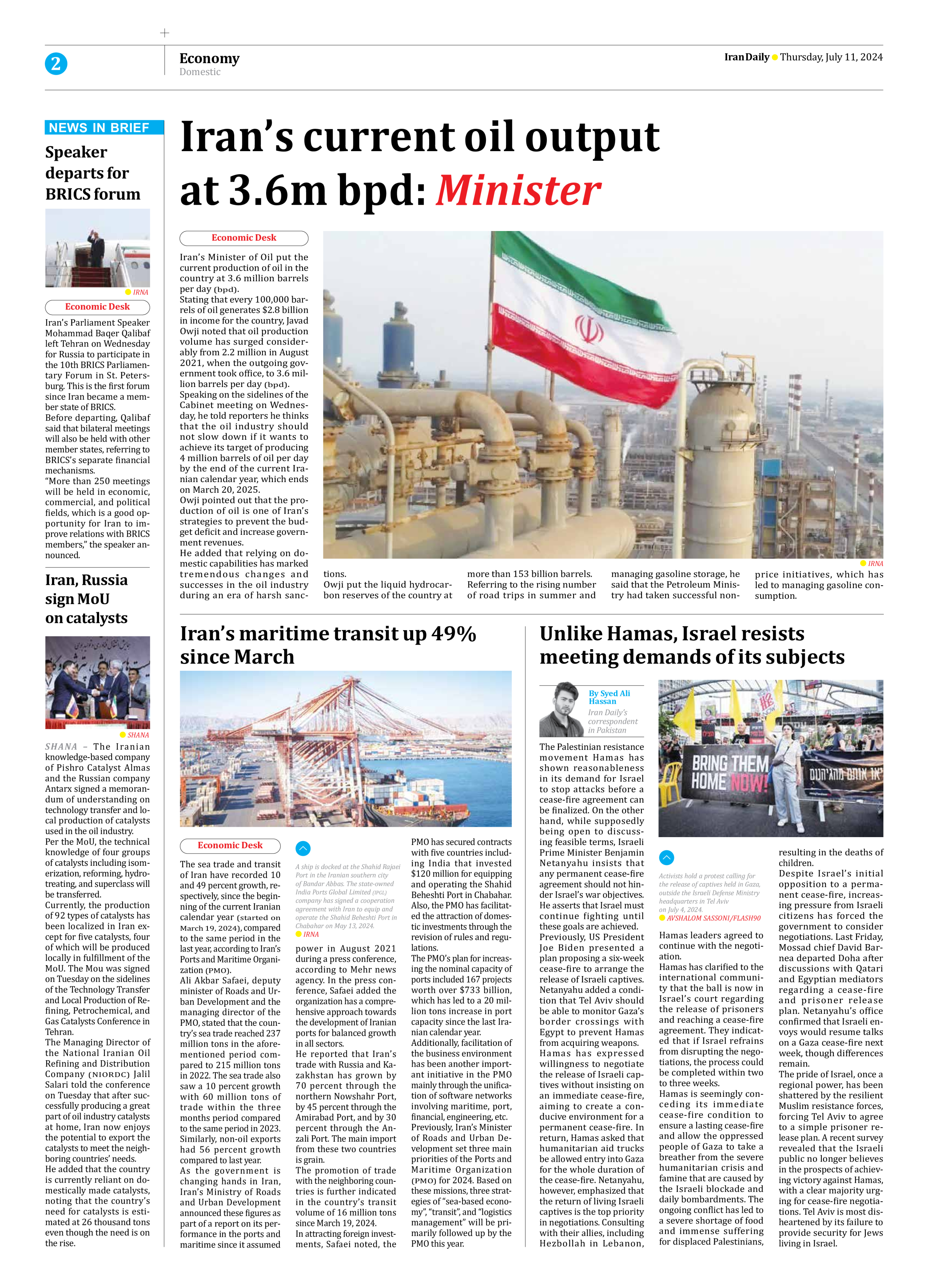
Copy in clipboard...
Unlike Hamas, Israel resists meeting demands of its subjects
Previously, US President Joe Biden presented a plan proposing a six-week cease-fire to arrange the release of Israeli captives. Netanyahu added a condition that Tel Aviv should be able to monitor Gaza’s border crossings with Egypt to prevent Hamas from acquiring weapons.
Hamas has expressed willingness to negotiate the release of Israeli captives without insisting on an immediate cease-fire, aiming to create a conducive environment for a permanent cease-fire. In return, Hamas asked that humanitarian aid trucks be allowed entry into Gaza for the whole duration of the cease-fire. Netanyahu, however, emphasized that the return of living Israeli captives is the top priority in negotiations. Consulting with their allies, including Hezbollah in Lebanon, Hamas leaders agreed to continue with the negotiation.
Hamas has clarified to the international community that the ball is now in Israel’s court regarding the release of prisoners and reaching a cease-fire agreement. They indicated that if Israel refrains from disrupting the negotiations, the process could be completed within two to three weeks.
Hamas is seemingly conceding its immediate cease-fire condition to ensure a lasting cease-fire and allow the oppressed people of Gaza to take a breather from the severe humanitarian crisis and famine that are caused by the Israeli blockade and daily bombardments. The ongoing conflict has led to a severe shortage of food and immense suffering for displaced Palestinians, resulting in the deaths of children.
Despite Israel’s initial opposition to a permanent cease-fire, increasing pressure from Israeli citizens has forced the government to consider negotiations. Last Friday, Mossad chief David Barnea departed Doha after discussions with Qatari and Egyptian mediators regarding a cease-fire and prisoner release plan. Netanyahu’s office confirmed that Israeli envoys would resume talks on a Gaza cease-fire next week, though differences remain.
The pride of Israel, once a regional power, has been shattered by the resilient Muslim resistance forces, forcing Tel Aviv to agree to a simple prisoner release plan. A recent survey revealed that the Israeli public no longer believes in the prospects of achieving victory against Hamas, with a clear majority urging for cease-fire negotiations. Tel Aviv is most disheartened by its failure to provide security for Jews living in Israel.







